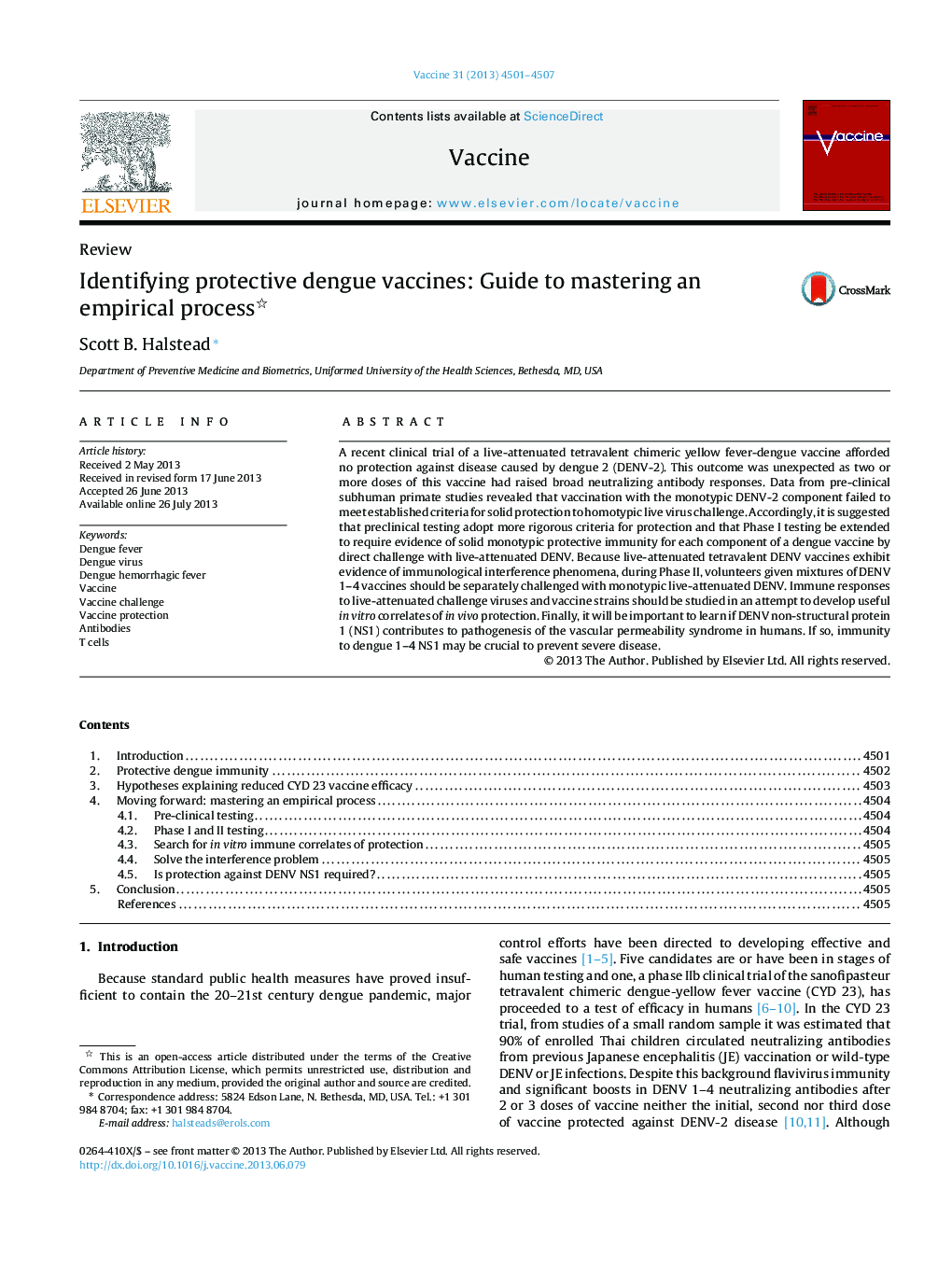| Article ID | Journal | Published Year | Pages | File Type |
|---|---|---|---|---|
| 10966381 | Vaccine | 2013 | 7 Pages |
Abstract
A recent clinical trial of a live-attenuated tetravalent chimeric yellow fever-dengue vaccine afforded no protection against disease caused by dengue 2 (DENV-2). This outcome was unexpected as two or more doses of this vaccine had raised broad neutralizing antibody responses. Data from pre-clinical subhuman primate studies revealed that vaccination with the monotypic DENV-2 component failed to meet established criteria for solid protection to homotypic live virus challenge. Accordingly, it is suggested that preclinical testing adopt more rigorous criteria for protection and that Phase I testing be extended to require evidence of solid monotypic protective immunity for each component of a dengue vaccine by direct challenge with live-attenuated DENV. Because live-attenuated tetravalent DENV vaccines exhibit evidence of immunological interference phenomena, during Phase II, volunteers given mixtures of DENV 1-4 vaccines should be separately challenged with monotypic live-attenuated DENV. Immune responses to live-attenuated challenge viruses and vaccine strains should be studied in an attempt to develop useful in vitro correlates of in vivo protection. Finally, it will be important to learn if DENV non-structural protein 1 (NS1) contributes to pathogenesis of the vascular permeability syndrome in humans. If so, immunity to dengue 1-4 NS1 may be crucial to prevent severe disease.
Related Topics
Life Sciences
Immunology and Microbiology
Immunology
Authors
Scott B. Halstead,
